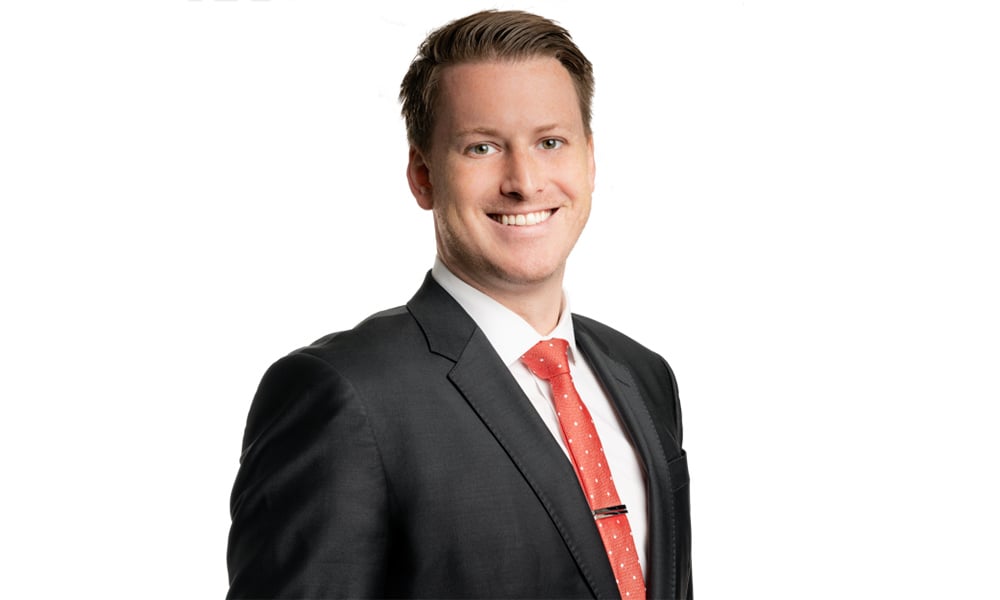Advisor says consistent message and philosophy is vital to keep clients aligned with their financial goals

Before speaking to WP, Evan Turner carried out a quick experiment and Googled the question: how should I invest my money? In 0.56 seconds, he had access to a mind-boggling 417 million articles. In today’s Internet age, not only is everyone an “expert” but there are swarms of them.
It’s an issue the Kelowna-based Nicola Wealth advisor feels has hugely impacted the job. Investors and clients are overloaded with information and advice about where to put their hard-earned money. And with so much literature literally at their fingertips, many feel they can be DIYers when the overwhelming majority actually need help weeding through the tsunamis of content.
It’s a double-edged sword. Turner believes the transparency of information is a good thing but knowing which route to take can lead naïve investors to numerous cliff edges. Advisors, therefore, while no longer being the information gatekeepers they once were in the 1980s, now need to be content curators.
“Our job is to be that steady hand with appropriate goals in order to bring them back on track,” Turner said. “That’s going to be very important through a multitude of different investing environments. You want to have a consistent and level message that is easy to stick to and simple to understand, so clients can feel assured through different environments that they're on the right path and achieving their financial goals.”
Arguably, there has never been greater pressure on investors to change course. As an example, according to The Globe and Mail, RBC had almost $3 billion in mutual fund net redemptions in March, which we now know was the bottom of the sell-off. “Talk about selling low and then potentially buying high,” Turner said. “That’s the inverse of what you should be doing.”
Such a dense amount of available information clearly increases the chance of irrational behaviour among investors. How, then, can an advisor ensure clients guard against this?
Turner told WP that from the onset of the relationship, there has to be a philosophy. Naturally, he believes Nicola Wealth’s approach – bolstered by a 25-year track record - is the right way to go but acknowledges there are other successful strategies out there. The weight of information online and on social media does, however, often mean Turner speaks to clients who beleive they’ve suddenly uncovered a better strategy on LinkedIn or Twitter.
Turner said: “I really welcome those conversations but it’s important for us to be curators of that information. When there's bad information, call it out as bad information and say why you don't agree with it and how we're going to move forward. Maybe it's good information but it's not what we do, so it’s explaining that there are other philosophies out there but that this is how we do it, this is why we chose it for you and this is why you were okay with doing it from the onset.”
At the extreme end of this is the recent tragic example of a Robinhood trader who reportedly killed himself after running up debts of more than $700,000. A desperately sad case, it highlights the get-rich-quick appeal of apps that feed on the human race’s greed mentality. On the opposite side sits fear and Turner said advisors must be alert to clients’ tendency to irrationally sell at the most inopportune time.
He said: “We have to be talking to our clients. As an advisory practice, it's important that you're a content producer and the content curator so you're getting your ideas out there and you're telling your client what you're doing and how you're doing it. That will lead to better decision-making or comfort with the decisions the advisor is making on the client’s behalf.”
He added: “It's our job to curate that information. That creates a degree of difficulty but [the amount of information available] is advancing the industry as well. You have to be more confident as an advisor and you have to be more knowledgeable.
“I’m a big believer in certifications. I’m a Chartered Financial Analyst and a Certified Financial Planner, and I think that having that educational background is going to make this an easier age to navigate because you have the proper training and proper licensing behind your name to be able to [interpret] all this information that’s out there.”



